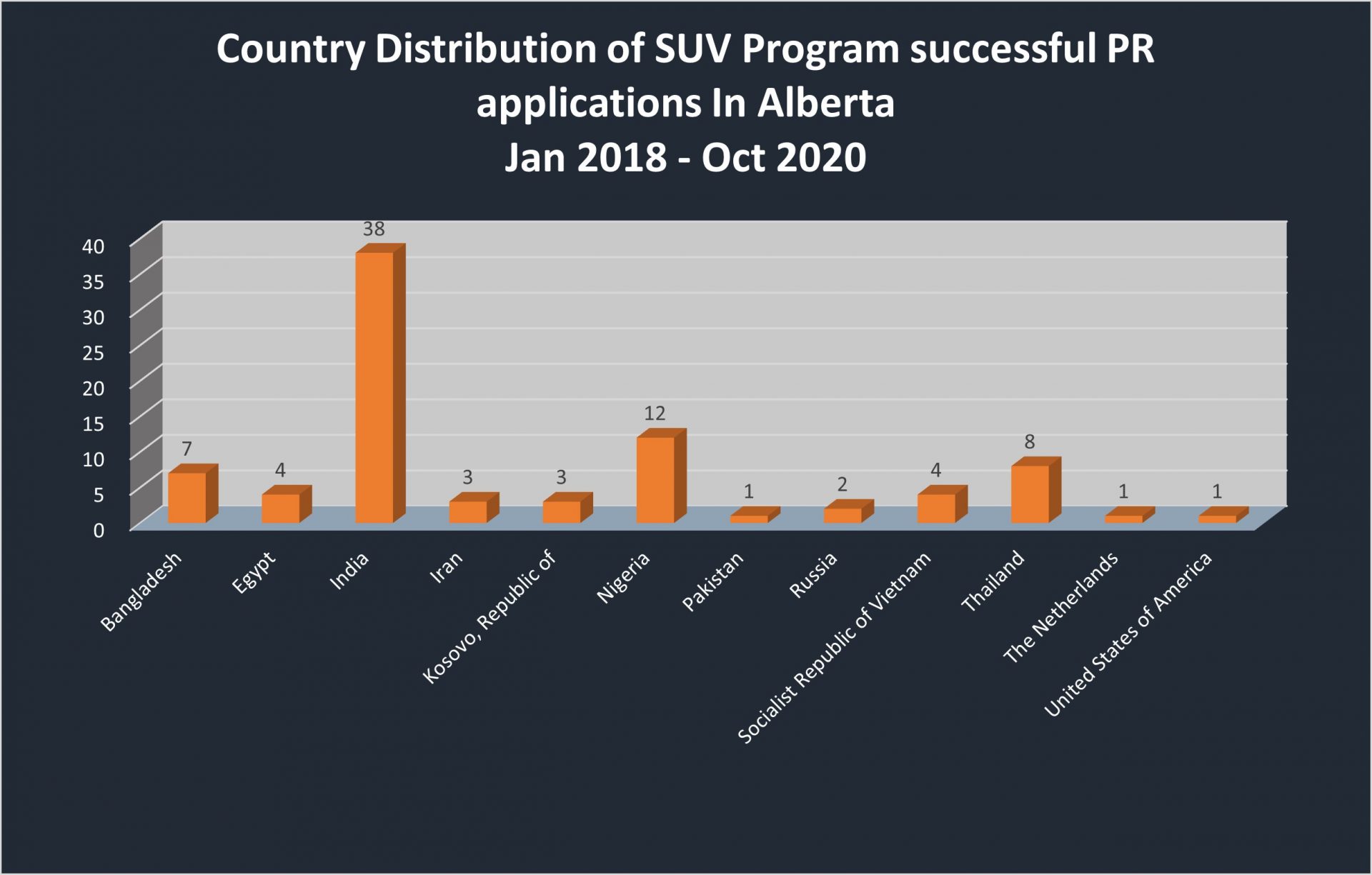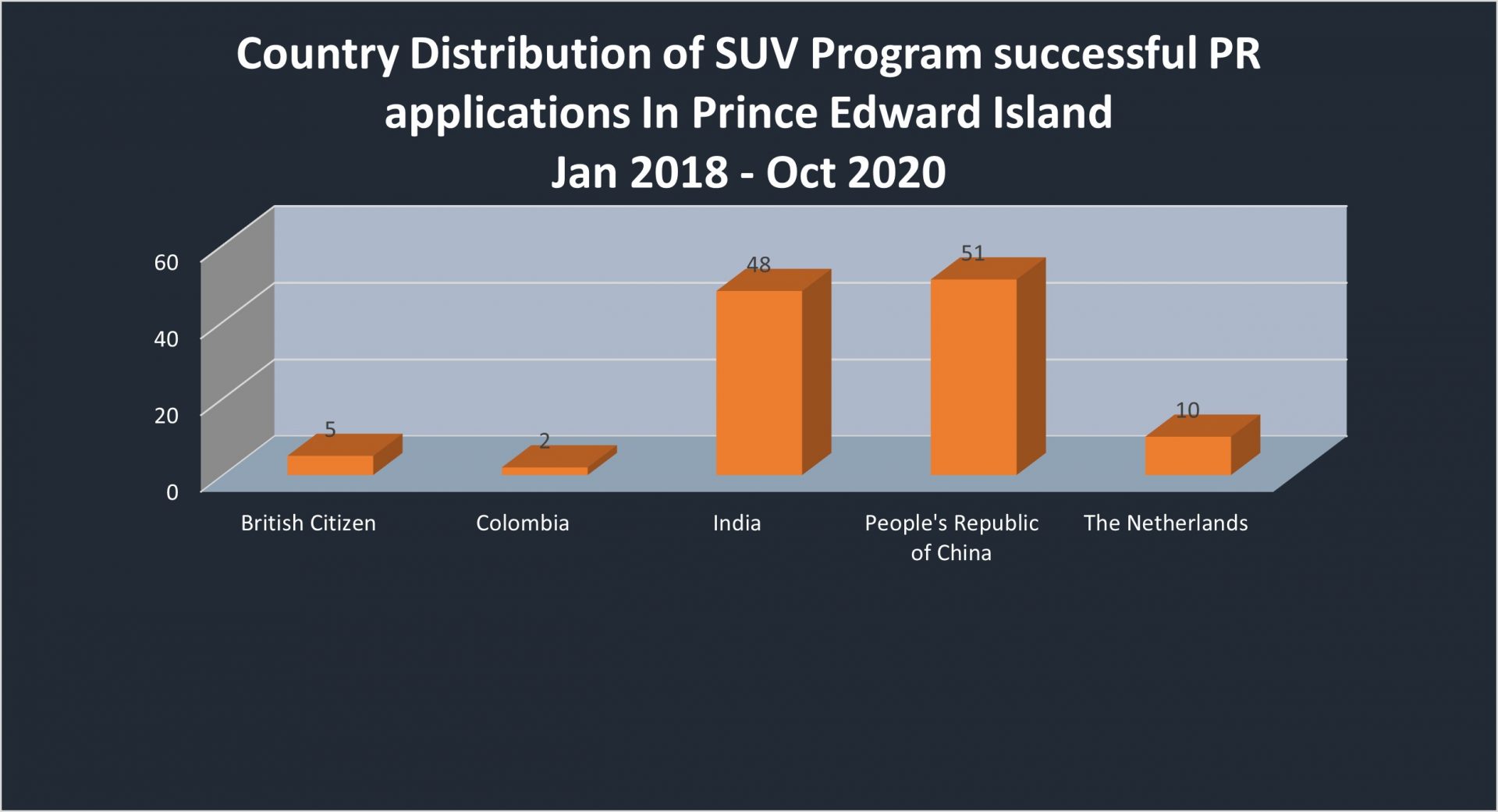Start-up Business Class
The Start-Up Visa was designed to attract innovative foreign entrepreneurs who would contribute to the new and innovation needs of the Canadian economy and facilitate entry of innovative entrepreneurs who would actively pursue business ventures in Canada.
Investment?
If the applicant is accepted into a Canadian business incubator program, no investment is required. Otherwise, applicants must secure the following:
- a minimum investment of $200,000, if the investment comes from one or more designated Canadian venture capital funds; or
- a minimum investment of $75,000, if the investment comes from two or more designated Canadian angel investor groups.
Eligibility?
- The applicant must provide a letter of support stating that the business venture or idea is supported by a designated organization (for example, designated venture capital funds, designated angel investor groups, or designated business incubators). The designated organization must also send a commitment certificate directly to IRCC. Both the letter of support and the commitment certificate is used to assess the
- The minimum language requirements are CLB 5 in either English or French for each of the four language skill areas.
- The applicant must have sufficient settlement funds, assessed using 50 percent of Statistics Canada’s current LICO for urban areas with populations of 500,000 or more.
FAQs
What is the minimum investment that I need to apply through the Start-up Visa Program?
If the investment comes from a designated Canadian venture capital fund, you must secure a minimum investment of $200,000.
If the investment comes from a designated Canadian angel investor group, you must secure a minimum investment of $75,000.
You don’t need to secure financial investment from a business incubator. You must be accepted into a Canadian business incubator program.
How can I qualify for the Start-up Visa Program?
To qualify for the Start-up Visa Program, you must meet all 4 eligibility requirements, as well as the admissibility requirements to enter Canada.
Eligibility requirements for the Start-up Visa Program
You must:
• have a qualifying business
• have a letter of support from a designated organization
• meet the language requirements, and
• have enough money to settle and live in Canada before you make money from your business
How can I get support from a designated organization?
• You need to contact the designated organization to find out how to get its support.
• You need to convince the organization that you have a business idea that is worth supporting.
• The process to pitch your idea is different for each organization. Each organization has its own requirements. For example, you may be asked to present your business concept in person or submit a detailed business plan.
• If you reach an agreement with a designated organization, it will send you a letter of support. You need to include this letter when you submit your application to us. This is the proof you need to show that the venture capital fund, angel investor group, or business incubator is supporting your business idea.
• The organization will also send a commitment certificate directly to us. We’ll use both your letter of support and the organization’s commitment certificate to assess your application.
Do I have to invest my own money if I want to apply through the Start-up Visa Program?
• No, you’re not required to invest any of your own money. The minimum investment required is an investment that comes from a designated Canadian venture capital fund or angel investor group.
If I immigrate through the Start-up Visa Program, what happens if my business fails?
• If your business fails, it doesn’t affect your permanent resident status. We recognize that not every business will succeed and this program is designed so that the risk is shared between the public and private sectors.
•
What happens if I receive investment support from more than one designated organization?
• Receiving support from multiple designated venture capital funds or angel investor groups is known as syndication. If you have syndicated support, then all investment organizations involved in the syndication must be identified. Only one commitment certificate will be sent electronically to us, and one letter of support will be provided to you.
• If a designated venture capital fund invests in your business, the minimum total investment amount is $200,000, even if a designated angel group also invests in your business.
• If at least one designated angel group but no designated venture capital fund invests in your business, the minimum total investment amount is $75,000.
The highest number of approvals for Start-up Visa according to nationality (2015 – Q1, 2021):
17% – Vietnam
16% – India
15% – China
8% – Iran
Looking at the approval rates per year, we can see that the average approval rate has been close to 80%.
Canada Start-up Visa approval rate by year:
2015 approval rate: 85%
2016 approval rate: 99%
2017 approval rate: 78%
2018 approval rate: 63%
2019 approval rate: 80%
2020 (Jan – Mar) approval rate: 72%
What is a Venture Capital Fund?
There are almost two dozen venture capital funds in Canada that can provide applicants for permanent residence under the Start-Up Visa program with a needed minimum of $200,000 of investment.
A venture capital fund is created when a group of investors pools money to place it in start-ups and small and medium-sized companies which show promise of rapid growth. The investors are looking for equity in these companies and are willing to accept the higher risk associated with these business ventures in exchange for the promise of higher returns.
The following 21 venture capital funds are authorized to provide financing to immigrant entrepreneur applicants.
- 7 Gate Ventures
- Arete Pacific Tech Ventures (VCC) Corp
- BCF Ventures
- BDC Venture Capital
- Celtic House Venture Partners
- Extreme Venture Partners LLP
- Golden Venture Partners Fund, LP
- iNovia Capital Inc.
- Intrinsic Venture Capital
- Lumira Ventures
- Nova Scotia Innovation Corporation (o/a Innovacorp)
- PRIVEQ Capital Funds
- Real Ventures
- Relay Ventures
- ScaleUp Venture Partners, Inc.
- Top Renergy Inc.
- Vanedge Capital Limited Partnership
- Version One Ventures
- Westcap Management Ltd.
- Yaletown Venture Partners Inc.
- York Entrepreneurship Development Institute (YEDI) VC Fund
When a prospective immigrant to Canada decides to apply under the Start-up Visa Program, his or her business idea must get the support of either a venture capital fund, an angel investor group, or a business incubator.
These organizations choose which business proposals to review and each has its own intake process for proposals and criteria used to assess them.
If that organization gives the Start-Up Visa program applicant’s proposal agreement, it will provide a letter of support, allowing the prospective immigrant to continue with the process.
More detailed requirements
- Letter of Support and Commitment Certificate
Applicants must have received a letter of support from a designated investor organization. In order to receive a letter of support, the applicant must convince a designated venture capital fund or angel investor group to invest in his or her proposed business. The investor organization will also have to provide a Commitment Certificate directly to Citizenship and Immigration Canada, summarizing the details of the commitment made with the applicant. - Investment Requirement
Applicants must secure an investment of at least $200,000 CAD if the investment is from a designated venture capital fund or secure a minimum of $75,000 CAD if the investment is from a designated angel investor group. Applicants are not required to invest any of their own money in this Canadian immigration program. - Language Requirement
applicants must provide language test results from an approved agency, and must meet the minimum level of CLB 5 in either English or French. - Education Requirement
The applicant must have completed at least one year of study at a post-secondary institution. The applicant must also be able to provide proof that he or she was in good standing for at least one year while attending a post-secondary institution. Applicants can provide transcripts, a letter of good standing, certificates, diplomas or degrees as proof for this requirement.

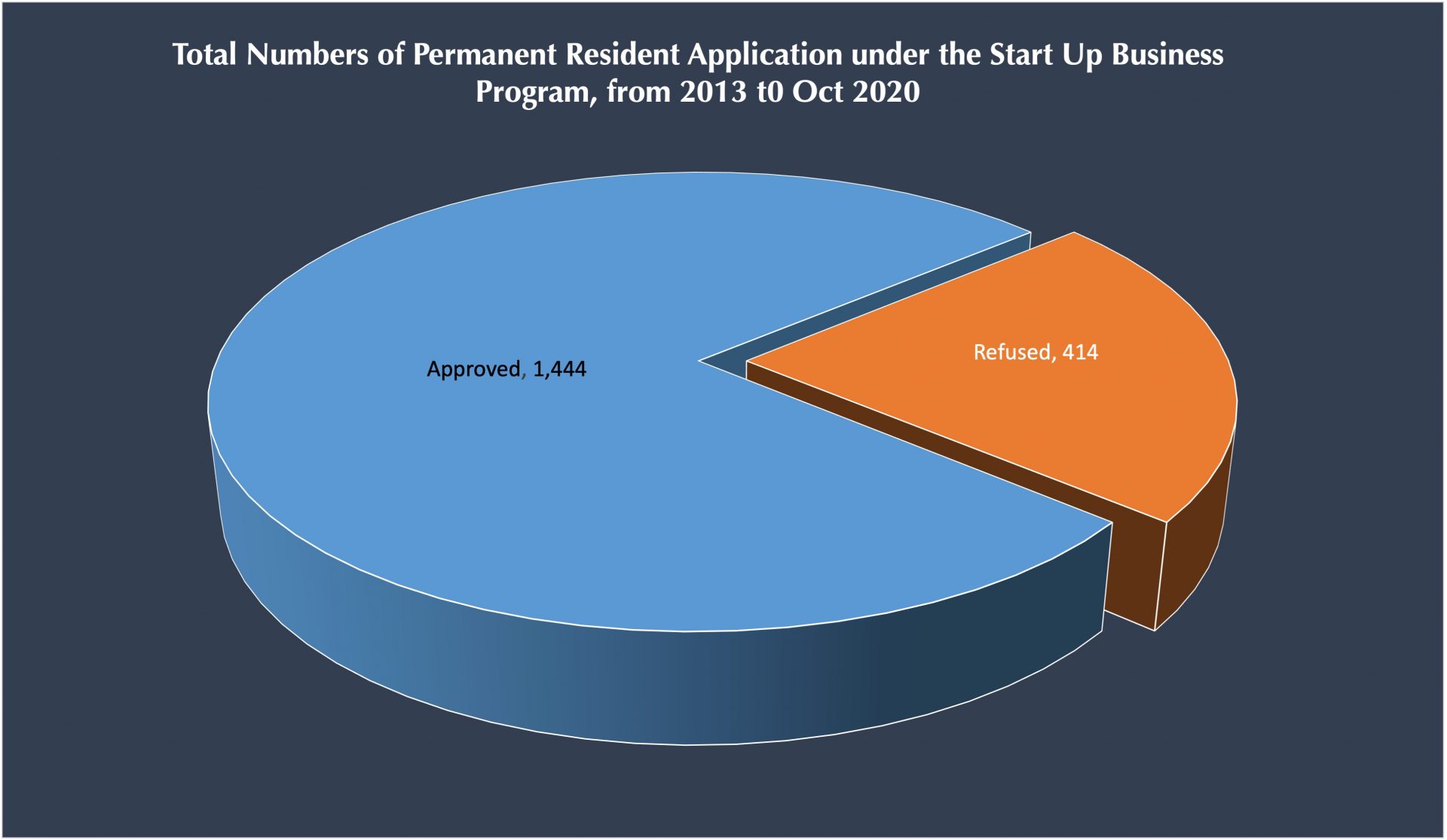
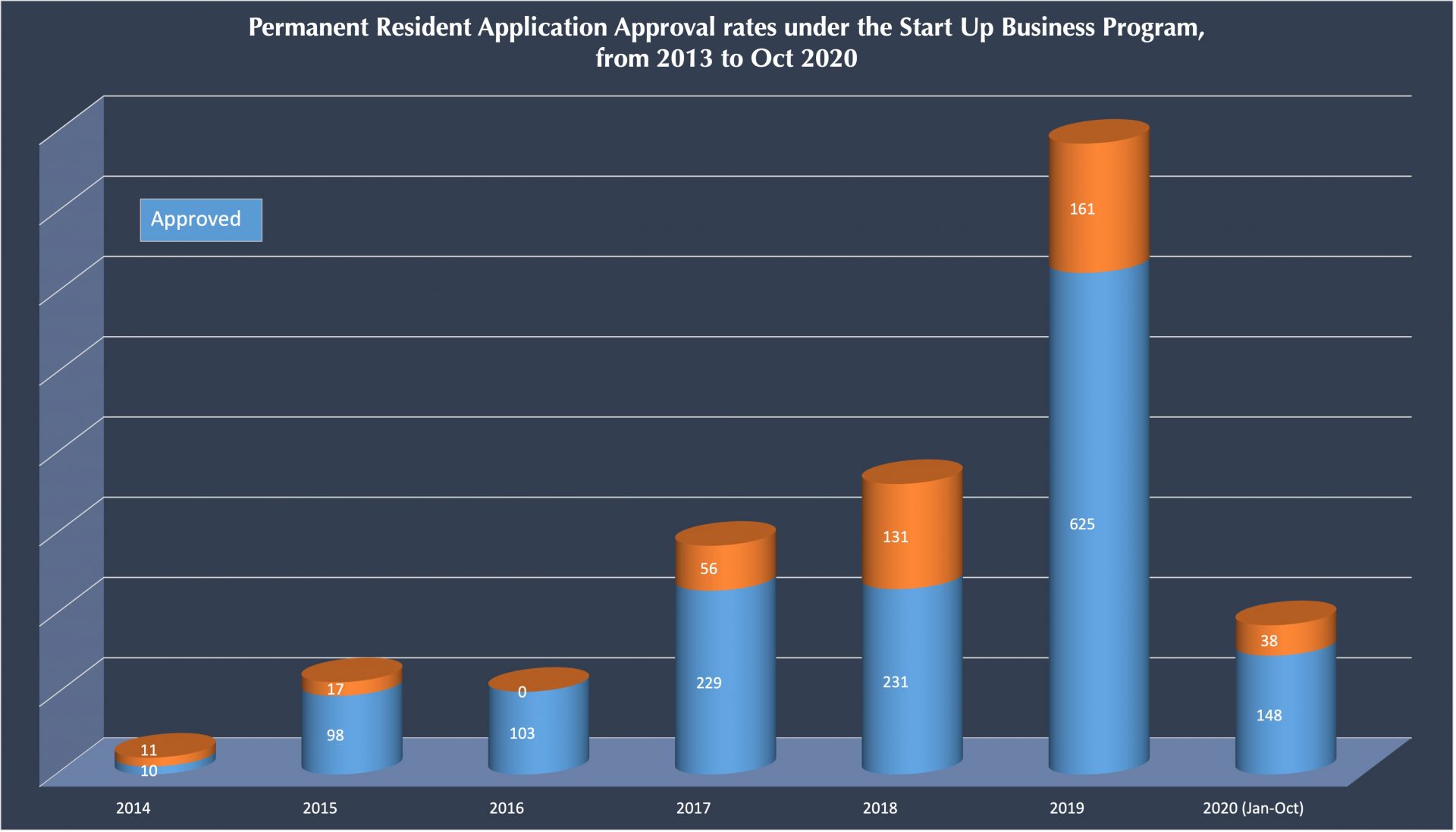
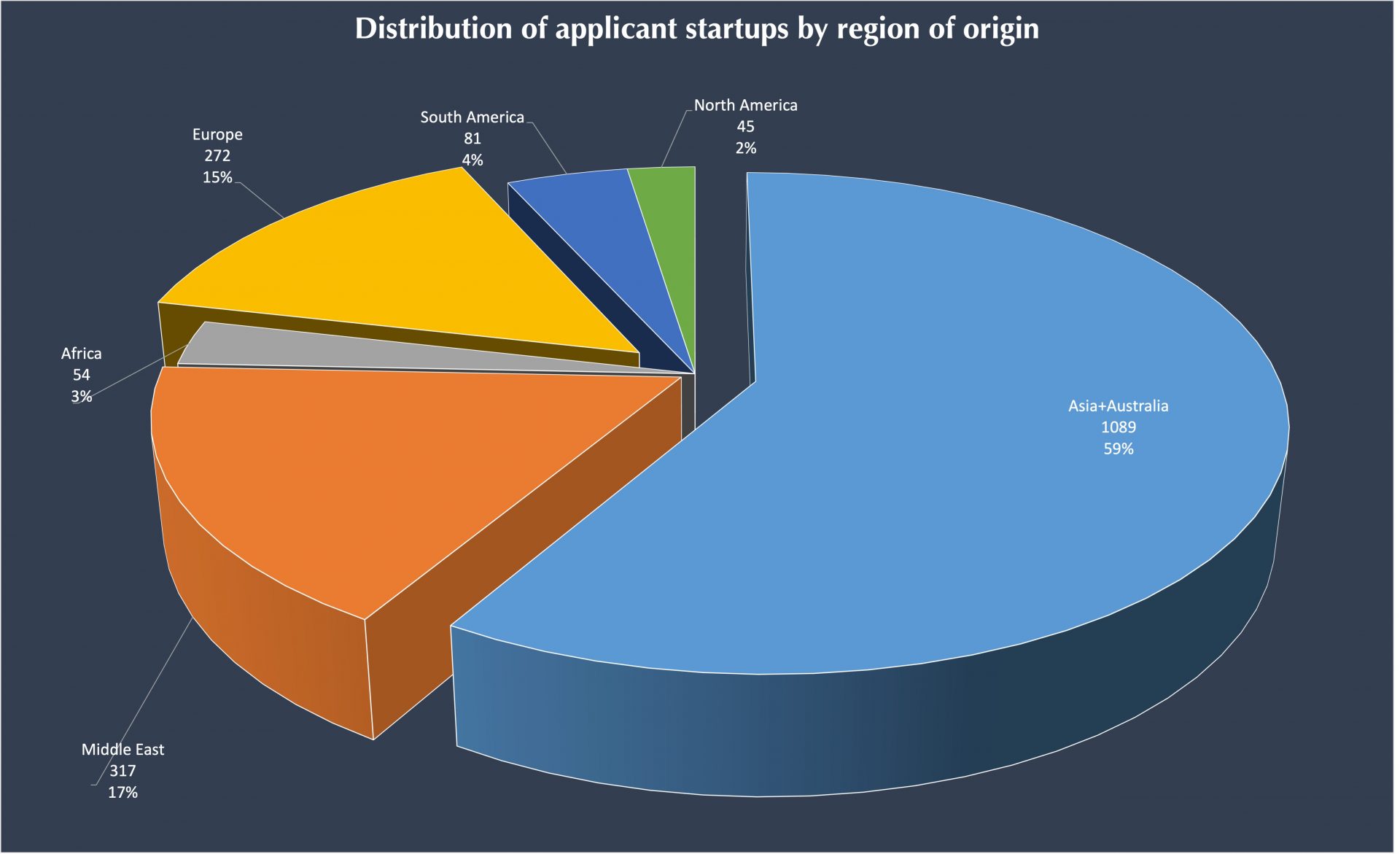
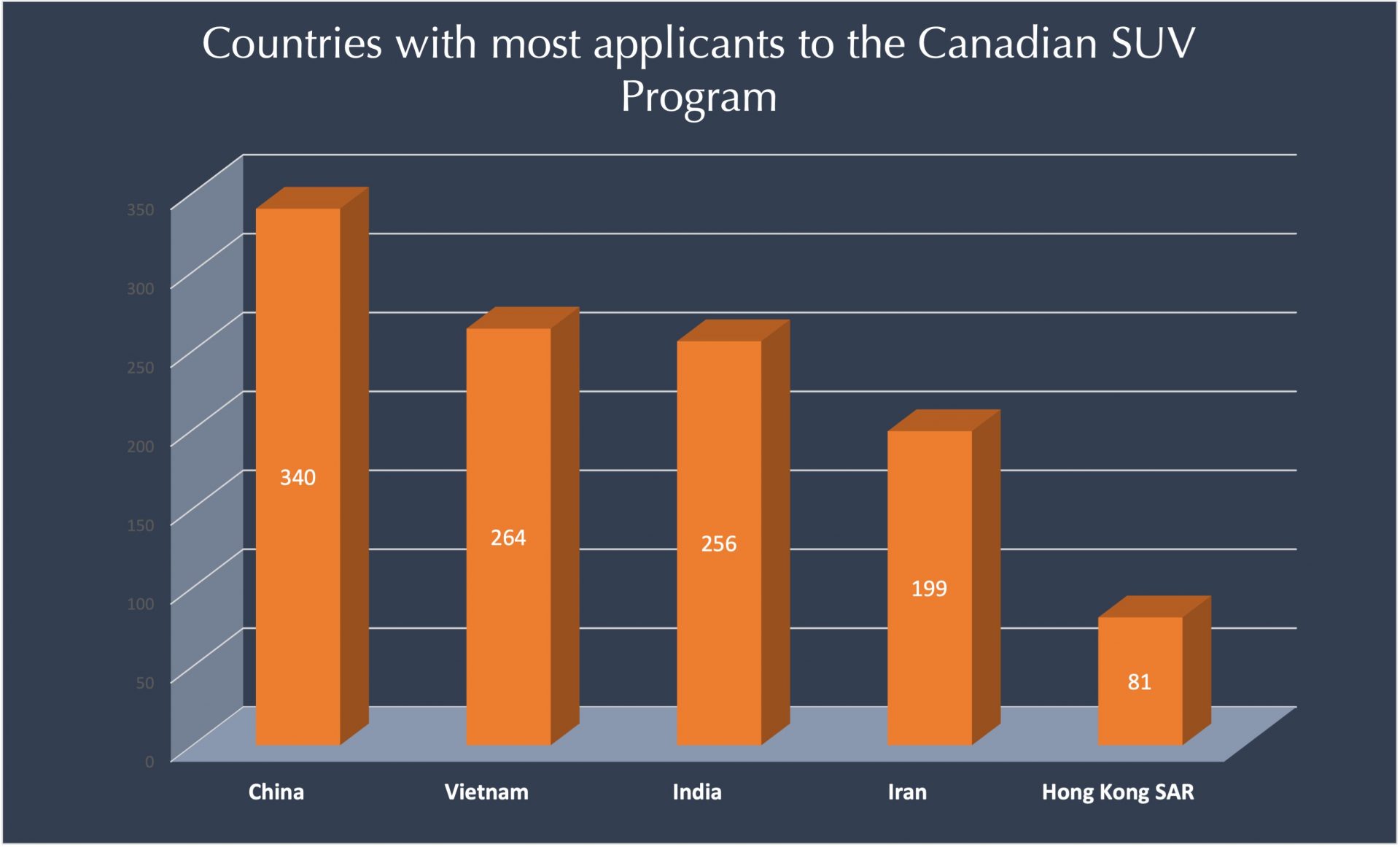 Figure 4- Countries with the highest number of applicants to Canadian SUV program between 2013 and 2020
Figure 4- Countries with the highest number of applicants to Canadian SUV program between 2013 and 2020



